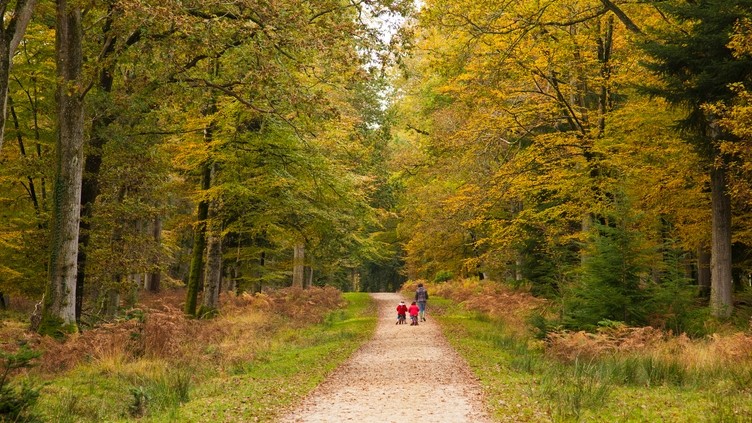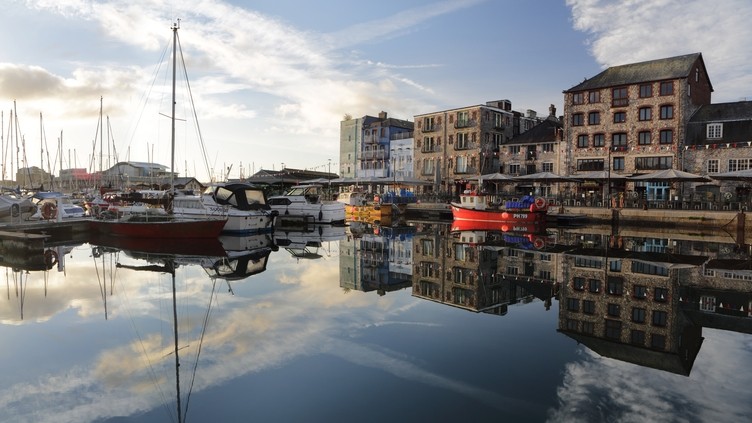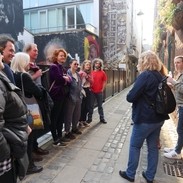Why do I tell?
Photo by: Getty Images/Nick Stone Schearer

Making customers feel good
Show you take care of things, leaving them to enjoy the benefits
The fact that most travellers will not go out of their way to buy from you because you are operating your business sustainably does not mean they don’t appreciate it. Worded right, your messaging can make them feel good about themselves, and reassure them that they are ‘doing their bit’. This applies to both leisure and business customers.
If you genuinely think your customers don’t want to know, focus on what you do for them. They probably won’t help you reduce your carbon footprint, but might value the fact that you are doing it anyway (particularly in the business market).
Make it easy, by telling them they can relax and enjoy, while you take care of things without compromising quality. Show them you are committed to green practices as well as ensuring a quality stay.
Customers feel good (or ‘less guilty’) facing easy choices. Encourage charitable donations, tell them about public transport options or where to recycle: show them it is both better and more sustainable. The easiest solution of all is for the options provided to be ‘good’ choices with positive impacts.
Examples of good and bad ways of sharing local supplier information with customers:
| Poor | OK | Good | Better | Best |
|---|---|---|---|---|
| Saying: “We buy local whenever possible” | A list of supplier names | A map showing your local supplier(s) | Add photos that show a human side of who they are | Make the photos clickable, linking to stories telling how these suppliers take good care of the produce they sell |
Raise awareness and change behaviour
Make it easy and appealing, and offer a reward
Doing all the work for your customers may leave you unsatisfied. There are probably things your customers can help you do, but you need to make them aware of what these are and make it easy for them to change their behaviour.
Step 1
Be specific about what you ask them to do. Vague messages lead to frustration. Just asking customers to be ‘eco-friendly’ will make little difference; they won’t know what this means, especially if they are away from home.
Step 2
What’s the benefit? Show them the actual impact of their action, even if it means someone else benefitting. Have you noticed how fundraisers tell you what your £10 to charity can buy, what kind of person will benefit, and in what way? Well, you need to do the same.
Step 3
Empower them: We all like to feel we have a choice and respond better to being asked than being told. For example, let customers choose which charity will benefit from the donation they are being asked for – that way they may end up giving more.
Step 4
Give something in return. We all like rewards for our effort, no matter how little we do. Whether you want your customers to purchase local or respect local customs, to drive less, or recycle more, think about the incentives that could be offered to encourage behaviour change.
Sell more to your current customers
Offer common sense products and services that naturally happen to be more sustainable.
Sustainability helps upselling. Design sustainable packages for your low occupancy or usage periods, or think of services that can generate more money in high season. Look at ways to encourage customers to stay longer, or to come back when your business is empty.
- Show them things to do throughout the year. Tell them what’s special each month. Do this not only with local events, but also with a nature diary, on your website.
- Promote products, for example: produce from local farms; encourage your customers to come back to restock.
- Offer ‘pick-and-cook your own veg’ classes, local history courses, after school ‘eco-warrior’ clubs for kids or nature-themed birthday parties. Create demand for times that are normally quieter.
- Promote March or April cycling weekends where you offer bike maintenance, so your customers get the season started early.
- Can you offer stand out experiences? Perhaps certain customers could be ‘midwives to a baby lamb’ to get them involved in farming, and with it, visiting early in the year.
- Typically, a rural pub is fullest at lunchtime on weekends. Develop special promotions to encourage mid-morning coffee or mid-afternoon tea and cakes, together with a free map for of a circular pub walk.
- Business hotels can include 30-and-60-minute local running maps, and design and promote a runner’s breakfast with the right nutritional contents. If you are a chain, roll it out across your whole portfolio.
- List things to do with a message of ‘stay for longer’:
- what to do for free: the message is to stay longer as the entertainment is cheap;
- on-a-rainy-day message: your holiday fun does not stop;
- with children message: the whole family will have a great time;
- from-your-doorstep message: more convenience, more options.
Cross-selling works
We’ve got it all: accommodation, events, courses… "
Photo by: Getty Images

What we do
Visitors can pick from a huge variety of services, all carefully planned to offer great experiences throughout the year.
How we tell
The Centre has diversified its products to cross-sell – our visitors look for one particular experience and often do two or three things.
This happens in two ways. We appeal to people who are keen to make a more conscious change in their living patterns through the principle of permaculture. They get inspired by our diverse range of activities and learning opportunities, vibrant natural spaces and knowledgeable staff. This also happens on site: people get hooked because we successfully demonstrate practical methods to try at home, in a fun and sustainable product package.
In our course ‘spring delights’ people learn what hedgerow and woodland herbs to use to cleanse, detox and re-energise, while relaxing on a day out through the woods. Thanks to this experience many book other courses, stay longer to enjoy fresh vegetarian food from the Beech Café and stay at the lodge or campsite.
The key is to be consistent, local and seasonal with all products – we run courses across different days and offer weekly residential courses and volunteering opportunities.
Our top tip
Offer more product options for customers to choose from and explain the benefits of each, in ways that relate to their experiences and interests.
To get more customers
Differentiate yourself with unique offers
Your sustainability credentials can give you the edge over other businesses with a similar price and location, in both the business and leisure markets. It’s all about being noticed and giving a bit more.
Remember, customers like to know they are getting a good deal.
Using sustainability creatively can result in increased occupancy (and lower seasonality), which can have a greater impact on the bottom line that higher prices. This is good news for the accommodation sector where managing occupancy levels has a more significant impact on the bottom line than charging more at peak periods does.
Businesses that adopt these recommendations should be able to increase their prices marginally or not reduce them as substantially in the low season.
To attract more customers, reward them for behaving sustainably with either a discount or additional benefits. Some cafés give a discount (and others donate a small amount to charity) for customers that bring their own reusable cup. This saves on disposable cups and gains customer loyalty.
If there’s no market, create one
We have aquarium visitors, even at night."
Photo by: Getty Images/Peter Cade

What we do
The aquarium has diversified its activities to increase non-traditional aquarium visits to flatten the trends of weather and holiday related visits – one specific area addressed is evening visits.
The business is hugely segmented, so we developed ‘Aquarium Lates’, a series of science, art, conservation and music evenings for the over 18s. Parallel to this we also offer ‘Sleeping with Sharks’ family sleepovers for our core audience.
How we tell
Our communications about ‘Aquarium Lates’ focus on emphasising the incredible experience offered and build on our research in aquaria therapy. The evenings offer tranquillity and culture.
Our ‘Sleeping with Sharks’ family sleepovers attract a range of different people, so we have developed an artwork series to maximize our appeal. Placement of this product is very precise and has seen great brand partnerships.
We present clear call-to-action messages on our website, social media and in print based upon customer profiles. For example: ‘Sleeping with Sharks, are you brave enough?’ and ‘Forget counting sheep… Sleeping with Sharks family sleepovers’. The messages go together with stunning artwork and images focusing on the visual experience of visiting. As a charity we also echo that all events help support marine conservation.
Our top tip
Increase your market by expanding targeted services focused on your business’ unique selling points. It’s important to offer diversity which not only means different activities, but also different experiences for each target profile.
Navigation
Previous:
Next:







